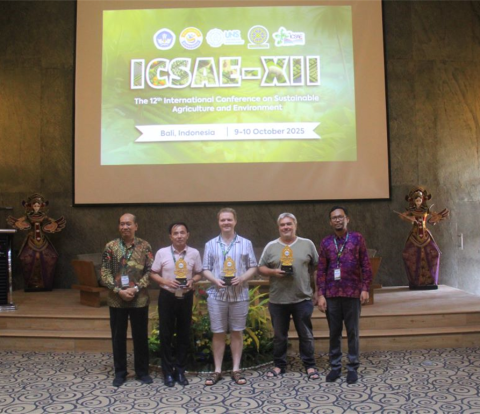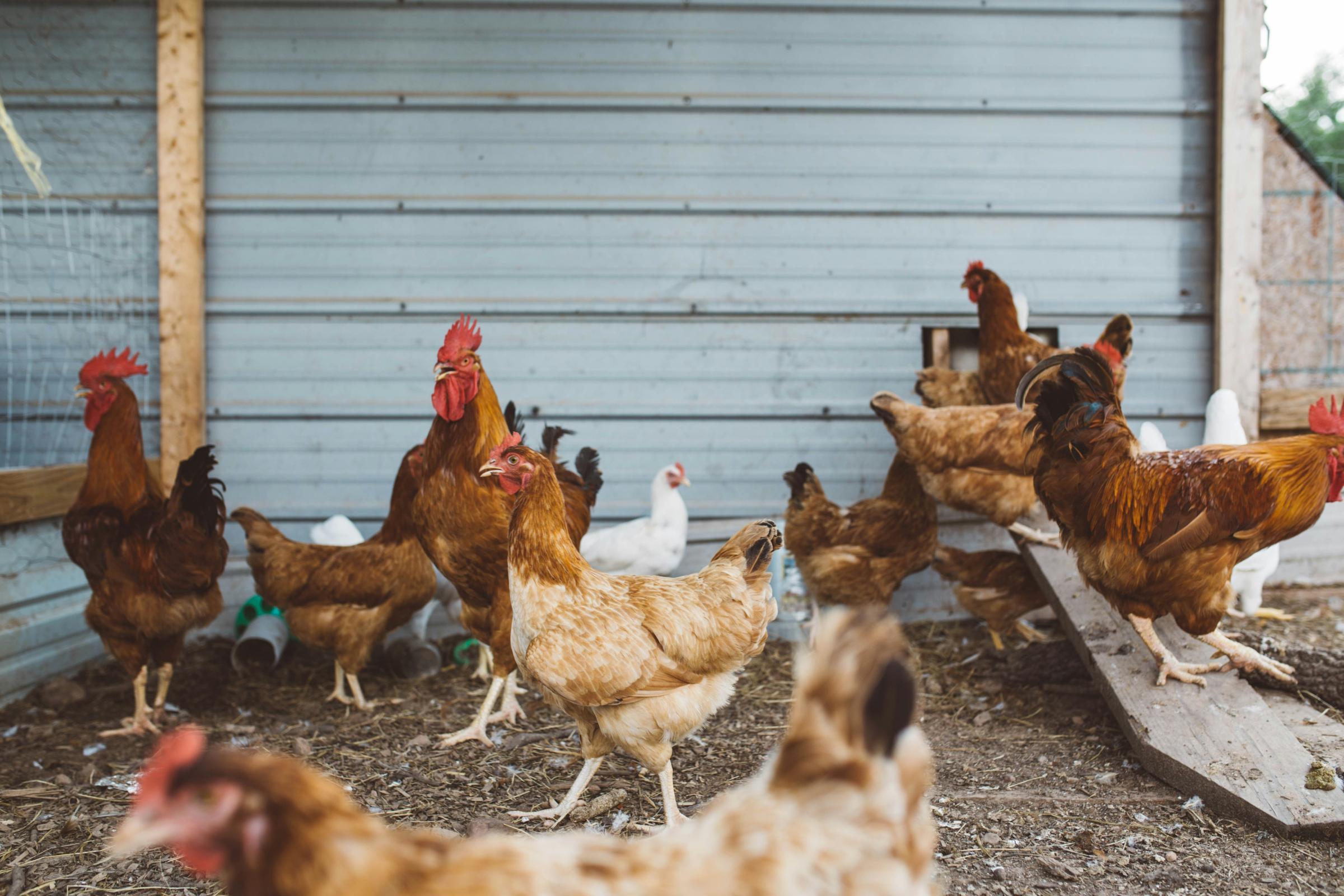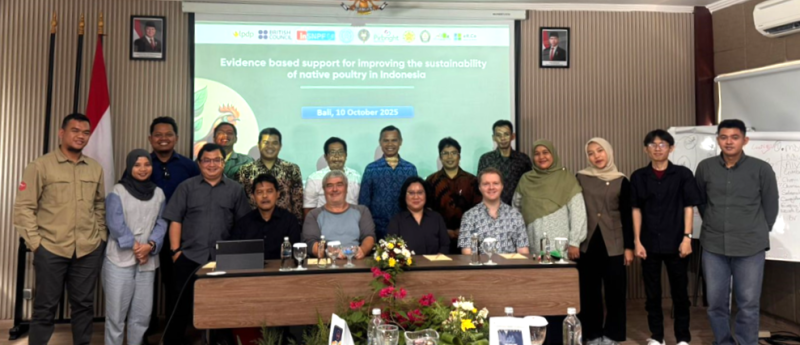Pirbright researcher Dr Steve Fiddaman, Avian Genetics, is collaborating with the University of Oxford’s Professor Adrian Smith on a British Council project in Indonesia. Its objectives: to better understand chicken genetic and immune diversity across Indonesian islands, and to identify novel strains of Marek’s Disease virus (MDV).
MDV infects poultry species such as chickens, quails and turkeys. It is a highly infectious airborne pathogen transmitted via inhalation: it has been reported in most poultry-producing countries and causes global economic losses estimated between US $1-2 billion.
Steve, who completed his PhD at the University of Oxford in 2021 under the supervision of Prof. Smith and Prof. Laurent Frantz (LMU, Munich), attended the 12th International Conference on Sustainable Agriculture and Environment, held in Bali in October.
“Both Adrian Smith and I were invited to give keynote talks and a workshop,” says Steve, “which brought together all of the scientists and field assistants who are working on our British Council project."
Delegates at ICSAE-XII in Bali
At the workshop, the field team provided an update on their sampling efforts. To date, they have collected blood and feather samples from over 600 chickens from smallholding farms in 19 different island locations around Indonesia (15 in Wallacea and 4 in Java).
The blood samples will be processed to generate whole genomes which will be used to understand (i) the ancestry of indigenous chicken populations in Indonesia, (ii) whether they are likely to suffer from any effects related to inbreeding or small populations, and (iii) to investigate whether there are any natural disease resistance traits which could improve the health and productivity of chickens in Indonesia and elsewhere in the world.
“The feather samples will be brought to the UK, where we will screen them for evidence of Marek’s Disease Virus, as part of our efforts to understand the global distribution of MDV, its virulence, and its effects on poultry farming", added Steve.
At the workshop, Dr Smith also provided a training event for the Indonesian team focusing on the infectious diseases affecting Indonesian chickens and the underlying basis of the immune response to these diseases.
Team members taking samples
The field team has also conducted extensive interviews with more than 200 smallholder farmers to understand the challenges that are faced in producing poultry in rural Indonesia, including the effects of infectious disease. One of the key objectives of the project is to feed back results from the genetic analyses to the farmers themselves, empowering them to make decisions about which chicken breeds to keep and how to manage their flocks. The Indonesian team, who are closely integrated with farmers and local communities, are key to delivering this objective.

Steve, centre, at ICSAE-XII
The British Council project works with three key individuals: Professor Sigit Prastowo, Professor Adi Ratriyanto, and Dr Nuzul Widyas from the Universitas Sebelas Maret (UNS) in Surakarta, Indonesia.
Dr Widyas said: “We are delighted to be working with Steve at The Pirbright Institute, a world-leading centre for research on viral infectious diseases."
“Through this collaboration, we aim to advance our understanding of infectious diseases in Indonesia’s native chickens, helping to develop better prevention and treatment strategies that can ultimately improve the livelihoods of smallholder farmers.”, Dr Widyas added.

